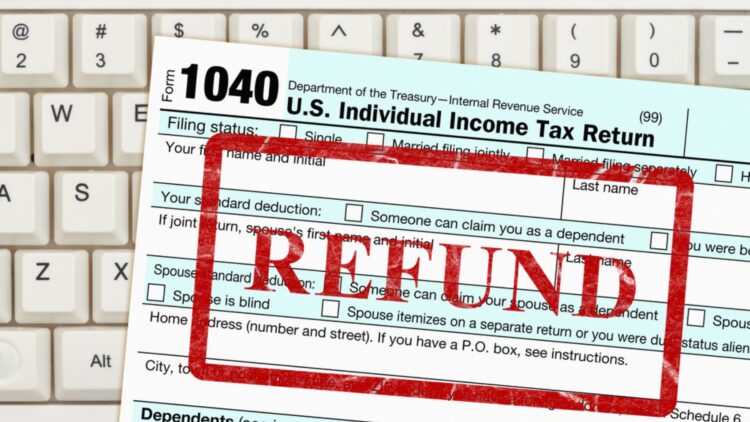If you are an American taxpayer who expected to see your tax refund arrive this May, you may be shocked to hear that the Internal Revenue Service (IRS) refunds for the last days of May could be delayed. In fact, one particular group will receive their refunds later, as confirmed by the IRS. The reason why the IRS will process this delay much later is that the IRS is dealing with a backlog of returns that require further intervention in the form of extra scrutiny and manual reviews. One specific group of citizens will have their tax returns scrutinized even further.
Reasons given for the tax refund delay in May
A few reasons have been provided as to why there could possibly be a tax refund delay this May.
Misleading information
Certain tax refunds could be delayed due to errors on the tax returns. Errors could include errors with Social Security numbers, missing signatures, or even calculation mistakes. Tax returns with errors get further scrutinized for manual review and, as such, slow down processing times.
Identity verification may be required
Another reason why the IRS could delay a refund is due to a mismatch in taxpayer identity records. When the IRS notices unusual filing activity, they may ask the respective taxpayer to verify their identity using the IRS Identity Verification Service.
IRS requires additional review
In certain cases, returns get selected for review if they reflect higher deductions, amended details, or other such errors. While these tax returns do not need to go through an audit, the processing time may be extended by weeks.
Returns claiming the EITC or ACTC
When citizens claim for credits such as EITC or ACTC, it automatically triggers the fraud prevention checks. When additional validation may be required, then such cases get delayed beyond February.
Which group will receive delayed payments this May?
As per the IRS’s official statement on delayed payments, a specific group of citizens will be affected by the IRS backlog. The group that will experience refund delays is the distinct group of low-to-moderate taxpayers who claimed credits such as the Earned Income Tax Credit (EITC) or the Additional Child Tax Credit (ACTC).
Usually, all electronically filed tax refunds get processed within 21 days. However, this time around, the IRS is dealing with the backlog of returns that may require manual scrutiny. The IRS will thus have to perform fraud checks to avoid improper payments.
Usually, this type of tax return results in delays all through February; however, some returns that deal with these credits seem to be under review still, and this process could go on until late May. Cases that require more scrutiny are those cases where identity verification and documentation may still be outstanding.
The reasons why it seems unfair for this group are:
- These citizens may be facing difficulties with accessing documentation or completing the verification process.
- This group may have filed early during the tax season.
- This particular set of people tends to depend on their refund as a form of financial assistance.
In many cases, the IRS will choose to flag a return as “documentation may be missing” when there is some sort of discrepancy in dependent status, income, or filing history.
What should this group of taxpayers do?
The good news is that the IRS has mentioned that complete and accurate tax returns are still processed within 21 days. The returns that have been picked up and flagged for review should be processed within six to 12 weeks. In these cases, refunds may only arrive by mid-June.
Citizens can stay abreast of their refund status by:
- Using the “Where’s My Refund?” tool.
- Utilizing the IRS2Go mobile app.
- Checking their individual online IRS accounts.
While refunds may be delayed this May due to the number of returns claiming the EITC or ACTC, citizens should not panic but aim to stay proactive. Just as keenly as citizens await refunds, some citizens must also look out for tax bills, which they should choose not to ignore.


